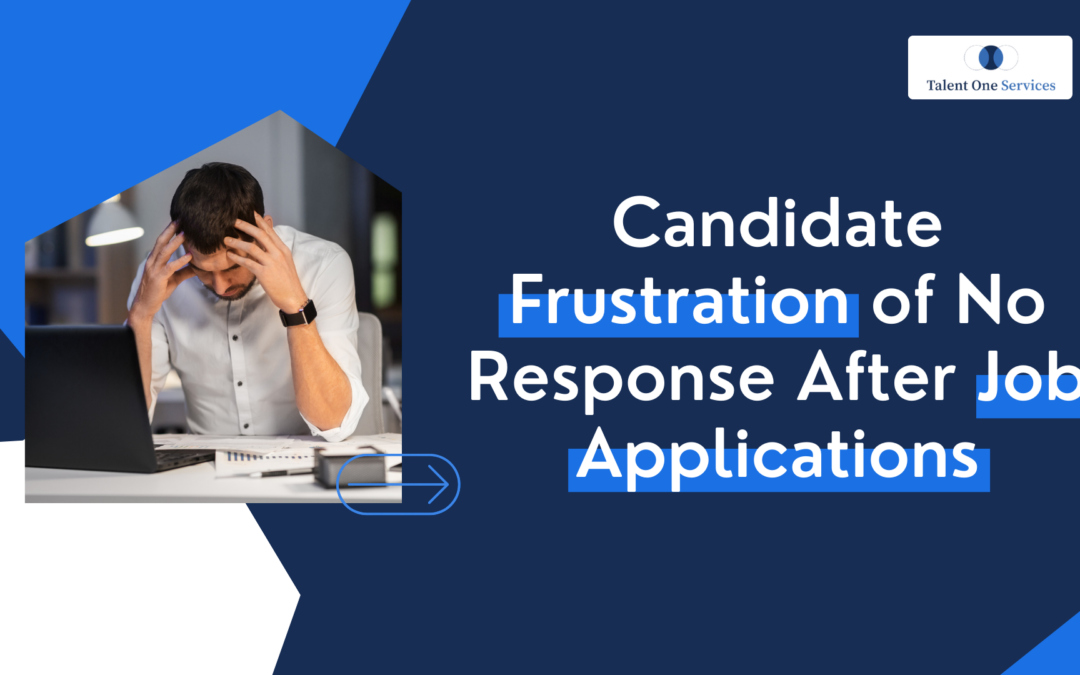In today’s highly competitive job market, candidates are often left wondering why they never hear back after submitting job applications. While sending out resumes and filling out applications is a crucial part of the job-hunting process, receiving no response can be incredibly frustrating. The experience of silence—whether it’s an outright rejection or no communication at all—can leave candidates feeling disillusioned, unappreciated, and questioning their worth. But why does this happen so frequently, and what can candidates do to manage their frustration?
The Reality of a Saturated Job Market
One of the primary reasons candidates don’t receive feedback is simply due to the sheer volume of applications. Many companies, especially large corporations, receive hundreds if not thousands of applications for a single position. With limited HR resources, it’s not always feasible for recruiters to respond to each application personally, especially those that don’t make the initial cut.
Recruiters typically prioritize applications that closely align with the job description. Often, if a candidate’s resume or cover letter doesn’t meet certain key qualifications or appear compelling at first glance, it may be set aside without further review. Unfortunately, this leaves the candidate in the dark, unsure of what went wrong or why they weren’t considered.
Automated Hiring Processes
The rise of Applicant Tracking Systems (ATS) has also contributed to the lack of communication candidates face. These systems, designed to filter out resumes that don’t meet certain keywords or criteria, make it so that many applications are never seen by human eyes. If a resume doesn’t pass the initial automated screen, it may never make it to the recruiter’s desk. Candidates are often unaware of this process, which can lead to frustration when they don’t hear back—especially after spending time tailoring their application.
The Emotional Toll on Candidates
The emotional toll of waiting for a response that never comes cannot be overstated. For candidates, applying for a job often means more than just sending out a resume. It involves research, tailoring their applications, and envisioning themselves in the role. The silence that follows can be a major blow to their confidence.
Feelings of rejection, disappointment, and self-doubt can creep in, especially after multiple applications with no responses. Over time, this cycle can lead to a more negative outlook on the job hunt, making candidates feel less motivated and more anxious with each subsequent application. For many, the process can feel dehumanizing, reducing their professional experience to a few lines on a resume that never seems to catch attention.
Why Employers Should Reconsider the Silent Treatment
From an employer’s perspective, the recruitment process can be overwhelming, and responding to every application may seem like a monumental task. However, there are strong reasons why companies should reconsider the silent treatment they give to candidates.
First, failing to communicate with applicants can hurt the company’s reputation. Job seekers often share their experiences with friends, on social media, or on employer review sites. A company that consistently ghosts applicants may develop a negative reputation, which can deter top talent from applying in the future.
Second, providing feedback or at least acknowledging an application can leave a lasting positive impression. A simple “thank you for applying” message or letting a candidate know they weren’t selected can foster goodwill. It shows that the company values the time and effort candidates put into applying, even if they weren’t the right fit for the role.
How Candidates Can Manage Frustration
While waiting for a response can be tough, there are ways candidates can manage their expectations and cope with the frustration of silence. Here are some tips:
- Don’t Take It Personally: Remember that job rejections (or no response) are often not a reflection of your abilities or worth. Many factors, including the volume of applications and specific hiring needs, are beyond your control.
- Follow Up: After applying, consider following up with the recruiter or hiring manager after a reasonable amount of time. A polite, concise email asking for an update can sometimes yield a response. However, be mindful of how frequently you follow up—once or twice is typically enough.
- Keep Applying: Don’t put all your hopes into one position. The job hunt is a numbers game, and the more applications you send out, the greater your chances of landing an interview. Make sure to keep looking and applying, even if you’re particularly excited about one opportunity.
- Seek Feedback: If you do get rejected, don’t be afraid to ask for feedback. While not all companies will provide it, constructive criticism can help you improve your future applications and interviews.
- Take Care of Your Mental Health: The job hunt can be mentally and emotionally exhausting, especially when you’re met with silence. Make sure to take breaks, engage in activities that boost your morale, and seek support from friends, family, or professional networks.
Conclusion
The frustration of receiving no response after a job application is a shared experience for many job seekers. While it’s understandable that companies may not have the resources to respond to every applicant, the emotional toll on candidates is real. As companies work to improve their recruitment processes, candidates can take proactive steps to manage their frustration and continue pushing forward in their job search.
Ultimately, communication—whether from employers or candidates—is key. A little feedback can go a long way in helping candidates feel valued, even if they aren’t selected for the role. And for candidates, staying resilient and proactive during the job search can help turn the silence into opportunity.
